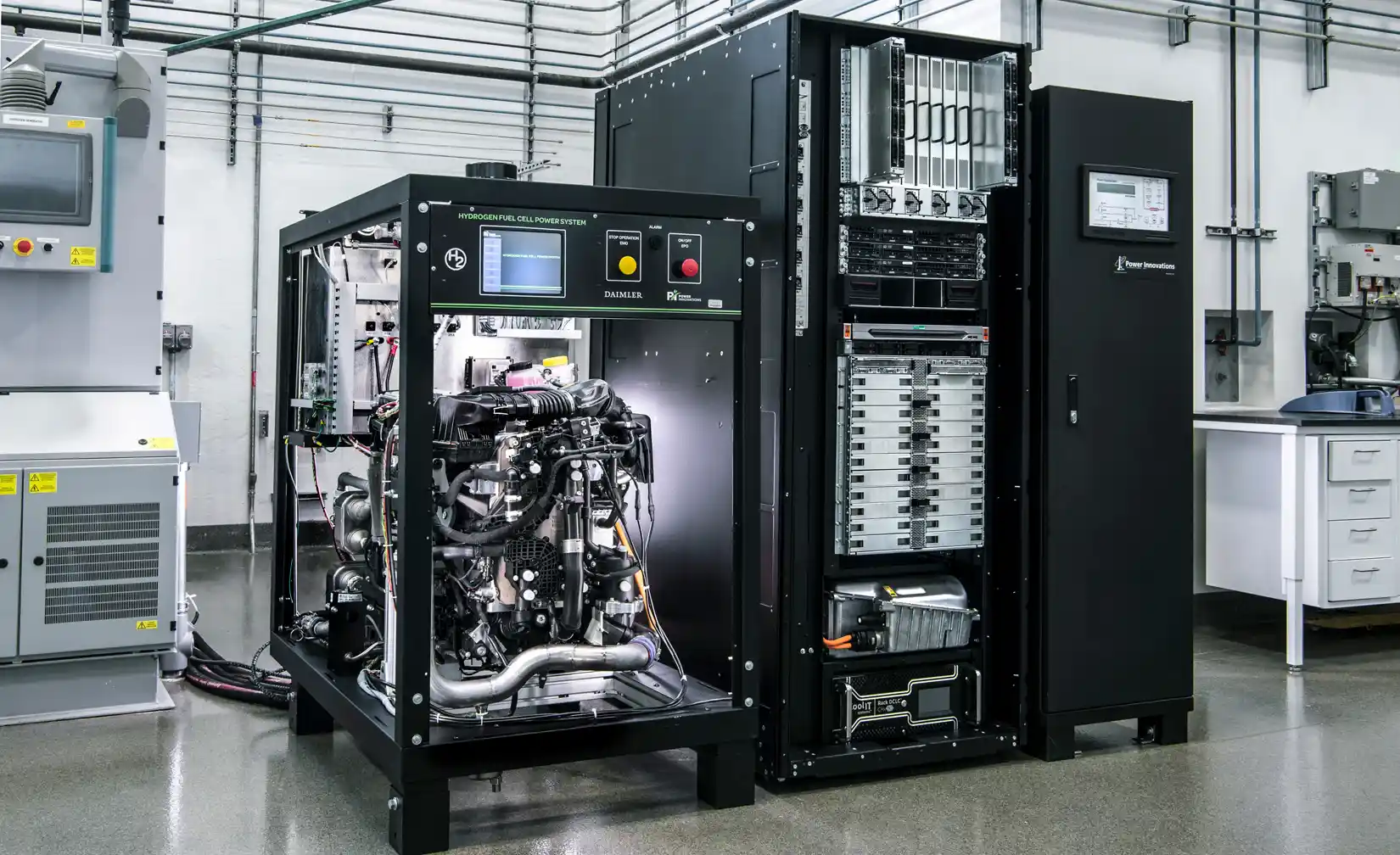Hydrogen Basics
Hydrogen can be both an energy carrier and a primary energy source, if it is extracted from the ground as naturally occurring hydrogen. As an energy carrier, it stores and transports energy produced from other resources such as fossil fuels, water, and biomass.

Hydrogen is a clean-burning fuel, and when combined with oxygen in a fuel cell, hydrogen produces heat and electricity with only water vapor as a by-product.
Hydrogen can be made directly from fossil fuels or biomass, extracted from geologic reservoirs, or produced by passing electricity through water, breaking the water into its constituent components of hydrogen and oxygen. As part of a growing energy system—along with the electricity grid and natural gas pipeline network—hydrogen can be produced from a variety of energy sources, stored for later use, piped to where it is needed, and then converted into heat and electricity.
Most hydrogen production today is by steam reforming natural gas, which is a relatively efficient and economic process. Hydrogen has very high energy for its weight, but very low energy for its volume, so new technology is needed to store and transport it.
NREL's Hydrogen Research
NREL researchers are working to help make a hydrogen economy a reality through:
Fuel Cells
Improving fuel cell technology and materials needed for fuel cells
Production
Developing technology to efficiently and cost-effectively make hydrogen from renewable energy sources
Storage
Developing technology to efficiently and cost-effectively store and transport hydrogen.
Additional Resources
For more information about hydrogen, visit the following:
Hydrogen Fuel Basics (U.S. Department of Energy's Office of Energy Efficiency and Renewable Energy)
Energy Kids Hydrogen Basics (U.S. Energy Information Administration Energy Kids)
Share
Last Updated July 23, 2025
